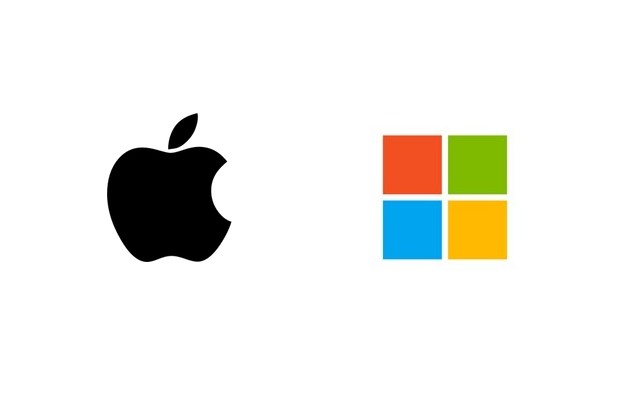Apple, Microsoft reportedly spar over 30-percent cut of in-app purchases
By Kunal Dua | Updated: 12 December 2012 15:22 IST

Advertisement
Microsoft and Apple are reportedly at loggerheads over latter's insistence of applying its policy of taking a 30-percent cut of all in-app purchases on Microsoft's high-profile apps.
Microsoft's SkyDrive app for iOS has been a talking point off-late after reports emerged that Apple was sitting on an update to the app allegedly due to a dispute over its share of revenue from SkyDrive subscriptions bought within the app.
Now a report in AllThingsD confirms that Apple indeed rejected - not just delayed - an update to the app, as part of a general disagreement with Microsoft that extends way beyond the SkyDrive app. According to the report, the real dispute is over the widely anticipated Microsoft Office apps for iOS, due to release in 2013.
AllThingsD further notes that Microsoft believes the launch of Office apps will bring additional creditability to the iOS platform, especially amongst enterprise users. Microsoft feels that the 30-percent cut is too high and wants special terms negotiated for its apps.
Apple, on the other hand, seems to be in no mood to set what might be a dangerous precedent, and wants to apply the rules uniformly to all apps and developers.
Apple declined AllThingsD's offer for a comment on the developments but did provide a generic statement on its revenue-share rules.
"Apple provides customers and developers the largest selection and safest way to discover apps with our curated App Store. We've designed our rules to be fair and consistent for every developer - free apps and services are distributed for free, paid apps and services provide a revenue share to Apple. We've paid out over 6.5 billion dollars to our developer community who have created over 700,000 apps."
Microsoft failed to respond to a request for comment by the time AllThingsD report was published.
Microsoft's SkyDrive app for iOS has been a talking point off-late after reports emerged that Apple was sitting on an update to the app allegedly due to a dispute over its share of revenue from SkyDrive subscriptions bought within the app.
Now a report in AllThingsD confirms that Apple indeed rejected - not just delayed - an update to the app, as part of a general disagreement with Microsoft that extends way beyond the SkyDrive app. According to the report, the real dispute is over the widely anticipated Microsoft Office apps for iOS, due to release in 2013.
Sources familiar with the ongoing negotiations between Apple and Microsoft tell AllThingsD that the companies are at loggerheads not over the 30 percent commission Apple asks of storage upgrade sales made through SkyDrive, but over applying that same commission to Office 365 subscriptions sold through Microsoft Office for iOS, which is expected to launch sometime next year.
AllThingsD further notes that Microsoft believes the launch of Office apps will bring additional creditability to the iOS platform, especially amongst enterprise users. Microsoft feels that the 30-percent cut is too high and wants special terms negotiated for its apps.
Apple, on the other hand, seems to be in no mood to set what might be a dangerous precedent, and wants to apply the rules uniformly to all apps and developers.
Apple declined AllThingsD's offer for a comment on the developments but did provide a generic statement on its revenue-share rules.
"Apple provides customers and developers the largest selection and safest way to discover apps with our curated App Store. We've designed our rules to be fair and consistent for every developer - free apps and services are distributed for free, paid apps and services provide a revenue share to Apple. We've paid out over 6.5 billion dollars to our developer community who have created over 700,000 apps."
Microsoft failed to respond to a request for comment by the time AllThingsD report was published.
Comments
For the latest tech news and reviews, follow Gadgets 360 on X, Facebook, WhatsApp, Threads and Google News. For the latest videos on gadgets and tech, subscribe to our YouTube channel. If you want to know everything about top influencers, follow our in-house Who'sThat360 on Instagram and YouTube.
Related Stories
Popular on Gadgets
- Samsung Galaxy Unpacked 2025
- ChatGPT
- Redmi Note 14 Pro+
- iPhone 16
- Apple Vision Pro
- Oneplus 12
- OnePlus Nord CE 3 Lite 5G
- iPhone 13
- Xiaomi 14 Pro
- Oppo Find N3
- Tecno Spark Go (2023)
- Realme V30
- Best Phones Under 25000
- Samsung Galaxy S24 Series
- Cryptocurrency
- iQoo 12
- Samsung Galaxy S24 Ultra
- Giottus
- Samsung Galaxy Z Flip 5
- Apple 'Scary Fast'
- Housefull 5
- GoPro Hero 12 Black Review
- Invincible Season 2
- JioGlass
- HD Ready TV
- Laptop Under 50000
- Smartwatch Under 10000
- Latest Mobile Phones
- Compare Phones
Latest Gadgets
- Moto G15 Power
- Moto G15
- Realme 14x 5G
- Poco M7 Pro 5G
- Poco C75 5G
- Vivo Y300 (China)
- HMD Arc
- Lava Blaze Duo 5G
- Asus Zenbook S 14
- MacBook Pro 16-inch (M4 Max, 2024)
- Honor Pad V9
- Tecno Megapad 11
- Redmi Watch 5
- Huawei Watch Ultimate Design
- Sony 65 Inches Ultra HD (4K) LED Smart TV (KD-65X74L)
- TCL 55 Inches Ultra HD (4K) LED Smart TV (55C61B)
- Sony PlayStation 5 Pro
- Sony PlayStation 5 Slim Digital Edition
- Blue Star 1.5 Ton 3 Star Inverter Split AC (IC318DNUHC)
- Blue Star 1.5 Ton 3 Star Inverter Split AC (IA318VKU)
© Copyright Red Pixels Ventures Limited 2024. All rights reserved.

















